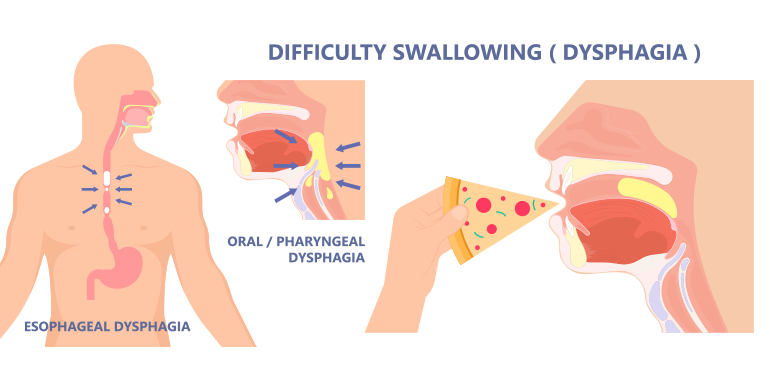Experts state that ageing has been shown to be a key contributing cause to dysphagia, with older persons having a higher chance of neurological problems and experiencing natural esophageal wear and tear that makes them more susceptible to swallowing issues.
Do you sometimes have trouble swallowing meals as well? It turns out that those who struggle with swallowing could also choke on food or liquids. Dysphagia, a medical term for trouble swallowing food, may be the cause of this. About fifty pairs of muscles and nerves aid in the process of swallowing food, according to the National Institute on Deafness and Other Communication Disorders (NIDCDC). Nonetheless, dysphagia affects over 15 million individuals in the US every year.
Dr. Subramanian Iyer, a professor and chairman of head and neck surgery and oncology at Amrita Hospital in Kochi, stated in an interview with News9, “Many of us have occasionally had trouble swallowing or even choking on food, but for some people, swallowing—sometimes even their own saliva—is a daily challenge.
This disorder is referred to as dysphagia in medical terminology, and we will discuss its causes, signs, and treatments in this post. Dysphagia is a disorder marked by difficulty swallowing, and because of the potentially serious effects, it has received more attention. This disorder may cause little pain or, in extreme situations, the inability to swallow at all, which is why specialists have explained its origins, symptoms, treatments, and preventative measures.
Studies have identified a number of prevalent symptoms that are strongly linked to dysphagia. Coughing, discomfort while swallowing, the ongoing sensation that food is stuck in the chest or throat, trouble using a straw, voice hoarseness, regurgitation, and recurrent heartburn are all included in these symptoms. Dr. Iyer said, “Those who struggle with dysphagia may also lose weight, cough often, and gag while swallowing, all of which highlight how severe their swallowing issues are.

Finding the Risk Factors dysphagia

Dr. Iyer said, “It is important to understand that dysphagia might be a risk factor. Age has been shown to be a key issue, with natural esophageal wear and tear as well as an increased risk of neurological problems making older persons more susceptible to swallowing difficulties. In addition, those who already have neurological or nervous system abnormalities are more likely to have trouble swallowing.
Serious Issues and Preventative Steps
Multiple health issues may potentially develop in addition to dysphagia. These include of aspiration pneumonia, weight loss, dehydration, malnourishment, and a continuous danger of choking. Although complete prevention of dysphagia may not always be feasible, there are steps that may be taken to reduce the likelihood of sporadic swallowing issues. This includes the recommendation to chew your meal well and slowly.
Dr. Iyer went on to say, “It is imperative that those who exhibit signs of dysphagia or have ongoing trouble swallowing get medical assistance right once. Appropriate therapy and a thorough examination are essential for treating this illness well. Physicians can better meet the requirements of patients with dysphagia and ensure their general wellbeing by raising awareness of the condition and implementing early intervention.

Furthermore, it’s critical to understand that dysphagia may result from a number of different medical disorders. Swallowing may be severely impacted by head and neck cancer or its treatment, which includes surgically removing organs like the tongue or voice box. One of the mainstays of cancer treatment, radiation therapy, may cause difficulty swallowing. Furthermore, a number of neurological diseases as well as ailments including food pipe restriction or outpouching may also lead to the development of dysphagia.
For the purpose of early identification and successful therapy, it is important to comprehend dysphagia, including its origins, symptoms, and preventative actions. By raising awareness and taking prompt action, people with dysphagia may greatly improve their general well-being and quality of life.
Source : news9live





